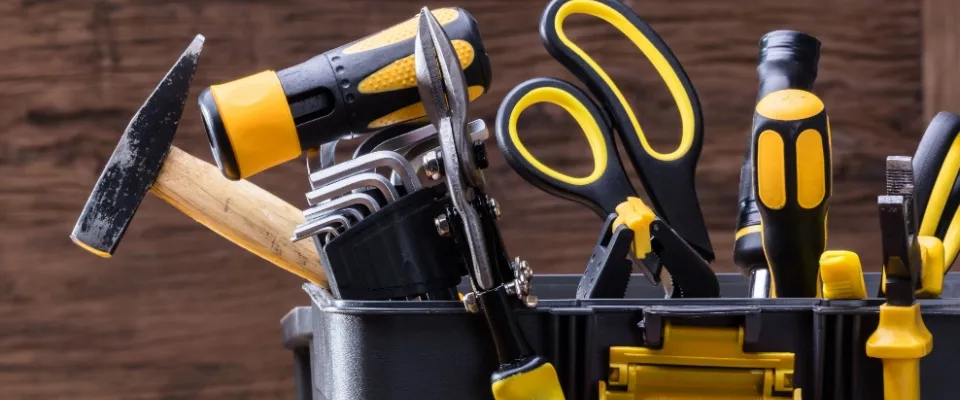Emergency Repairs in Your Apartment: What Qualifies and How to Act Quickly
Share this article:
Picture this: it’s 2 a.m., and you wake up to the sound of water dripping through your apartment’s ceiling. Or maybe you come home from work to find your heating system isn’t working in the middle of January.
Moments like these feel overwhelming, and your first thought may be, “What do I even do right now?” That’s exactly why you need to know what counts as emergency repairs in your apartment and how to handle them without panicking.
In this guide, we’ll break down what really qualifies as an emergency, why timing matters, and what steps you should take to protect yourself, your safety, and your living space.
What counts as an emergency repair?
Not every maintenance issue is an emergency. A squeaky cabinet door or a broken blind can wait. But emergencies are the kind of problems that put your health, safety, or apartment at risk if not addressed immediately. Here are some of the most common examples:
- No heat in winter or no air conditioning in extreme summer heat. Losing climate control during extreme weather can be unsafe, especially for kids, older adults, or anyone with health conditions.
- No running water or no working toilet. Basic plumbing failures usually qualify as emergencies because they make the apartment unlivable.
- Gas leaks or a strong smell of gas. This is a “drop everything” type of situation. Leave the apartment right away and call your gas company or 911 before you notify your landlord.
- Electrical outages or exposed wiring. Power loss might not always be an emergency, but if it’s tied to faulty wiring or only affecting your unit, it can pose serious fire and safety risks.
- Flooding, major leaks, or burst pipes. Water damage spreads quickly and can ruin flooring, walls, and your belongings. A burst pipe or fast leak is always urgent.
- Broken locks or doors that aren’t secure. Anything that leaves your apartment unsafe from a security standpoint should be reported immediately.

Knowing these situations helps you decide when to call maintenance right away versus when to wait until business hours or submit a maintenance request through your resident portal (if you have one).
Gray areas: When it’s urgent but not quite an emergency
Some situations feel urgent but may not count as emergencies in your lease agreement. For example:
- A dripping faucet (annoying but not dangerous).
- A broken appliance, like the dishwasher or microwave.
- One power outlet isn’t working.
These issues still deserve attention, but they usually won’t bring maintenance staff rushing over at midnight. Always check your lease or community guidelines to see how your building defines emergencies.
How to act quickly in an emergency
When something serious happens, you don’t want to waste time figuring out what to do. Here’s a simple step-by-step plan for handling emergency repairs in your apartment:
1. Stay safe first
If there’s immediate danger — like a fire, gas leak, or sparking wires — leave the apartment and call 911. Your safety is more important than anything else.
2. Limit the damage if you can
For flooding, shut off the water valve if you know where it is. When it comes to electrical problems, flip the breaker. For leaks, place a bucket or towels to minimize damage. Small preventative actions can save you and your landlord from big headaches later.
3. Contact your landlord or property manager immediately
Most apartment buildings have an emergency maintenance line or on-call staff. Save these numbers in your phone so you’re not scrambling to find them in the middle of the night.

4. Document the issue
Take quick photos or videos of the issue. This protects you from being blamed for damage and helps maintenance understand the situation before they arrive.
5. Follow up in writing
After the immediate situation is handled, send an email or written note describing what happened and what steps were taken. This creates a clear record for both you and your landlord.
What to avoid during emergencies
It’s easy to panic when something unexpected happens, but try to keep a clear head. Here are a few common mistakes renters make during apartment emergencies:
- Trying risky DIY fixes. Don’t mess with electrical wiring or attempt major plumbing repairs. Leave those to professionals.
- Delaying the call. Hoping the problem will go away usually makes things worse. Report emergencies right away.
- Skipping documentation. Without photos or notes, it’s harder to prove your side if there’s a dispute about damage.
Tips to prepare before apartment emergency maintenance is needed
Being prepared can save you time and stress. A few smart moves now can make a future emergency easier to handle. Here are some things you can do to prepare for potential issues:
- Know where your shut-off valves and breaker box are located.
- Save emergency contacts in your phone, including your landlord, property manager, and utility companies.
- Read your lease carefully to understand what your landlord covers and what’s your responsibility.
- Keep basic supplies on hand, such as a flashlight, batteries, towels, and a small toolkit.

Why prompt reporting matters
When you act fast, you’re not just protecting yourself; you’re protecting your neighbors and the building, too. A burst pipe doesn’t stay in one unit, and an electrical issue can spread risk throughout the property. Quick reporting also helps avoid disputes about who is responsible for damage.
Remember, landlords are usually required to handle emergency repairs promptly. Often, there’s a clause in leases that requires you to alert them of a problem within 24 hours. The responsibility starts with you.
Living in an apartment means unexpected problems will pop up now and then. But by being prepared and knowing the right actions in case of emergency repairs in your rental, you can turn what feels like chaos into a situation you can handle with confidence.
Share this article:
Roxana Nica is a senior real estate writer with RentCafe and ResidentShield, bringing over six years of experience in crafting digital content across various consumer industries, including fashion and interior furnishings. She develops resources that address the everyday needs of renters, from smart living tips to navigating residential services. Roxana holds a B.A. in International Relations and an M.A. in Advertising.
The Ready Renter has your back
Tips, news, and research curated for renters, straight to your inbox.




Related posts
Subscribe to
The Ready Renter newsletter







